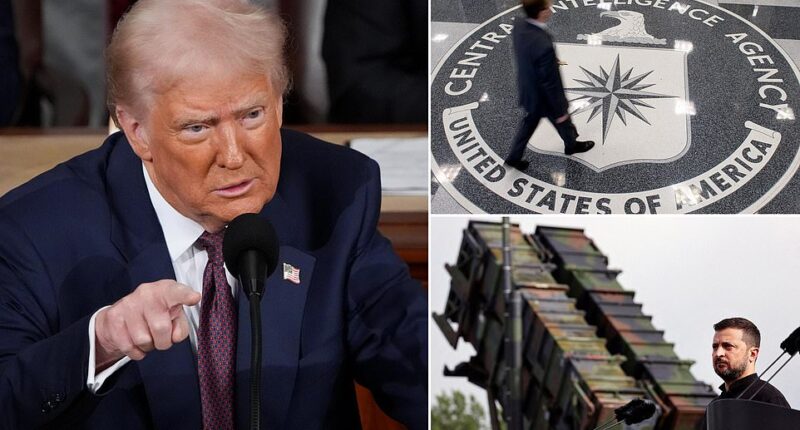The division between Washington and its allies regarding Donald Trump’s favorable approach to Russia intensified on Thursday. Reports surfaced indicating that the closest intelligence partners were contemplating holding back sensitive information from their U.S. counterparts out of concern that agents or foreign assets could be compromised.

This development followed Trump’s advocacy for Russia to be reinstated in the G7 group of nations and the temporary halt of intelligence sharing with Ukraine by the U.S. Consequently, European leaders are anxious about the potential loss of American protection in the near future.

French President Emmanuel Macron has expressed readiness to explore extending France’s nuclear protection to allies. Additionally, he announced plans to convene a meeting of military leaders from European nations willing to deploy peacekeeping forces to Ukraine once a peace agreement is reached.

The sense of a growing transatlantic rift was heightened when NBC cited multiple sources saying allies including Israel, Saudi Arabia and members of the so-called Five Eyes spy alliance—Australia, United Kingdom, Canada , New Zealand and the U.S.— were weighing whether to change protocols for sharing intelligence with the Washington.

The sources said any revisions would take into account the Trump administration’s conciliatory approach to Russia into account. ‘Those discussions are already happening,’ said a source. The review is one piece of a broader look at relations with Washington, including trade and diplomacy, said the sources.

During Trump’s first term, he was accused of sharing highly classified intelligence about the Islamic State with the Russian foreign minister during a meeting in the Oval Office. The information came from another country, which had not given permission for it to be shared for fear of exposing the source, according to the Washington Post. This time around, administration officials have explained their warming relations with Russia as a way of bringing Moscow to the negotiating table and ending the war in Ukraine.

A spokesman for the National Security Council said Trump was clear-eyed on security threats. ‘The U.S. has unrivaled intelligence capabilities which is exactly why intelligence sharing initiatives such as the Five Eyes exist,’ spokesman Brian Hughes told NBC. ‘President Trump is clear-eyed on all threats our adversaries pose to our national security and he will work with any ally or partner who understands the dangerous world inherited after the disastrous Biden years.’

A day earlier, the White House confirmed that it had halted the supply of intelligence to Ukraine. ‘We have, we have taken a step back,’ National Security Adviser Mike Waltz told reporters at the White House on Wednesday. He added that the Trump administration was pausing and reviewing ‘all aspects of this relationship.’

It came after Washington paused military aid to Kyiv on Monday following a dramatic public row between Trump and Ukrainian President Volodymyr Zelensky in the White House on Friday. European Union held emergency talks Thursday on ways to quickly increase their military budgets in response.

British Prime Minister Keir Starmer is trying to act as a bridge between disgruntled European leaders and Trump. He played down the idea that the two sides are at loggerheads, saying that the U.S. remained a crucial ally and that he was working to ‘ get the U.S., and European allies onto the same page so that we can all focus on what matters most, which is lasting peace in Ukraine.

Want more stories like this from the Daily Mail? Visit our profile page and hit the follow button above for more of the news you need.








